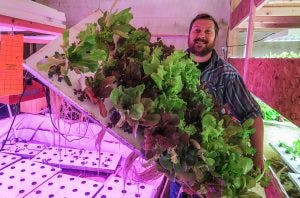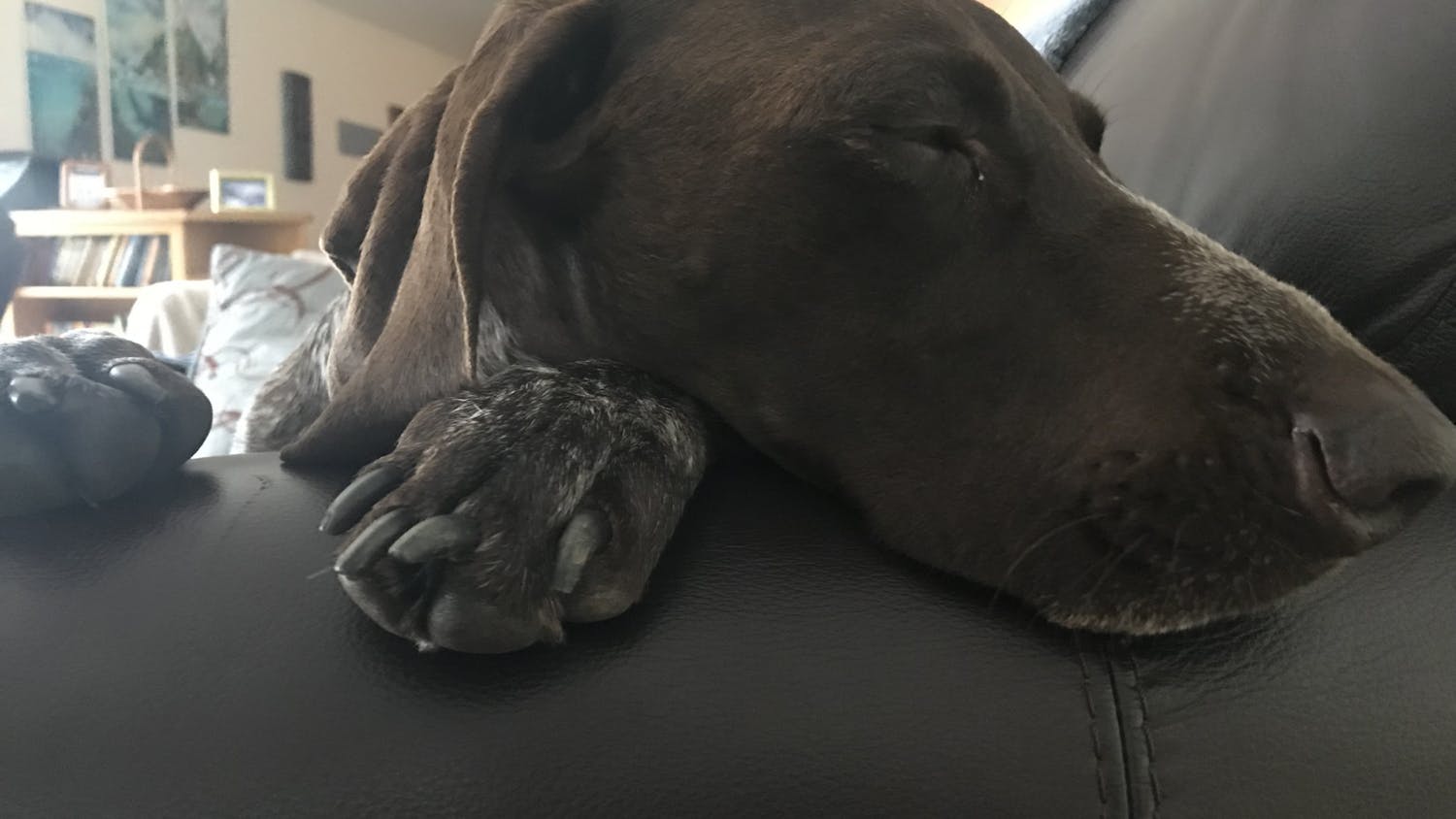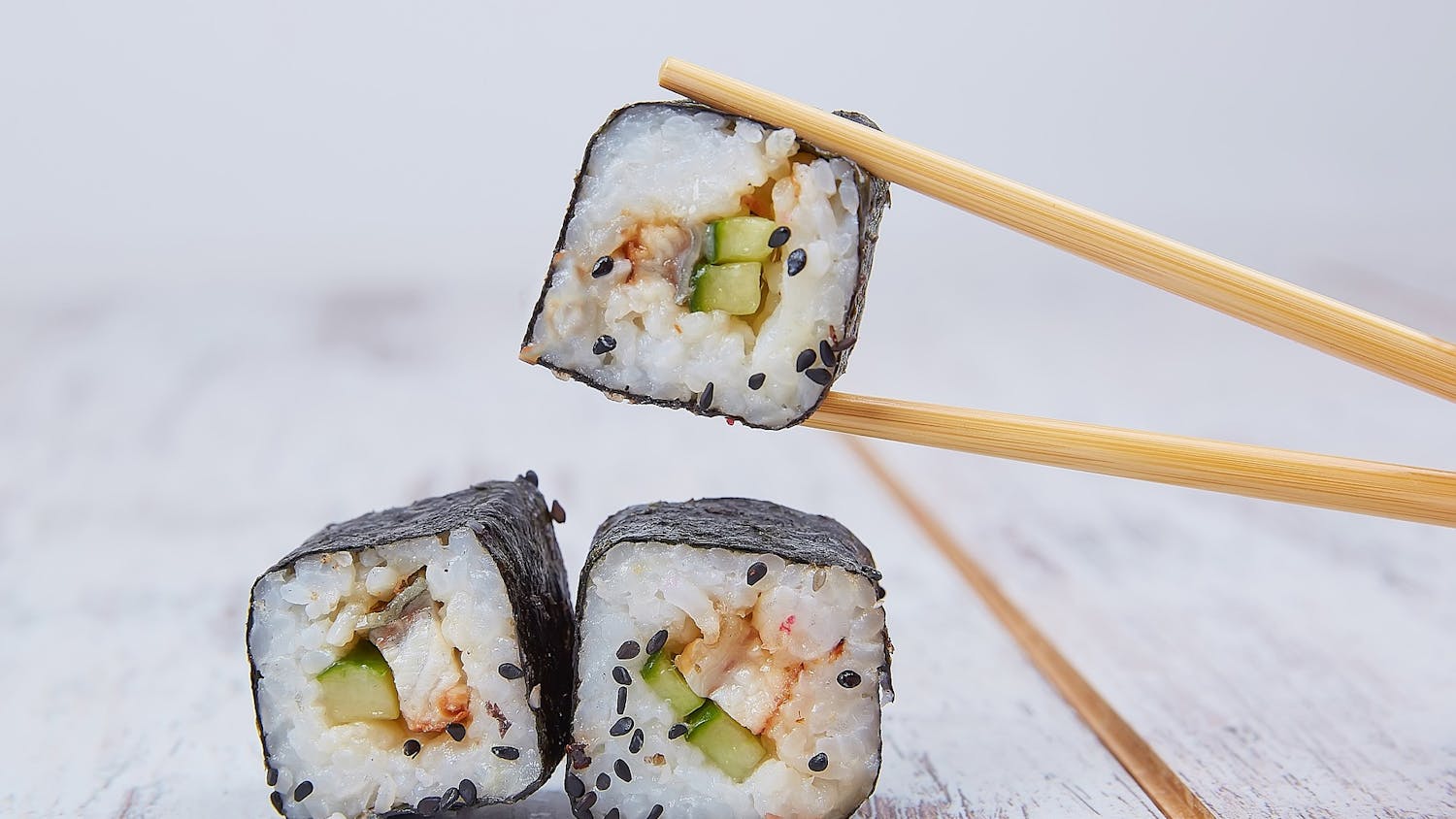Did you know aquaponics helps put toppings on your pizza?
Through the doors of a warehouse near the Bellis Fair Mall is an indoor aquaponics farm, where crops are grown year round.
The farm makes more produce in a limited space with less water than a typical farm, all without using any pesticides or fertilizers.
Barrett Lizza created and runs the whole operation. In addition to designing and building the system on his own, Lizza grows and harvests the leafy greens and herbs himself, and hand delivers them to buyers.
Lizza named the business Da’Vine, and it’s made possible with a technique known as aquaponics.
“If you try and figure out the main problems in the world, it usually boils down to food.”
Barrett Lizza
Aquaponics is a combination of aquaculture, which is the farm raising of fish, and hydroponics, which is a soil-free method of growing crops. When the two methods are combined, a closed loop is formed. Fish waste in the water is brought to the plants, which use the waste as fertilizer, which filters the water for the fish.
“It’s a fully functioning ecosystem inside of a building that makes lots and lots of vegetables,” Lizza said. “I make 600 pounds of mixed lettuce and over 1,440 heads of kale a month.”
Lizza also raises trout and catfish in the system, which he sells as food.
He currently supplies food to Aslan Brewing Company, Goat Mountain Pizza, Cosmos Bistro and more. Lizza is now in the process of moving to a new, larger facility downtown to start producing for more clients, including the Community Food Co-op.
Recently, Lizza installed a system inside of Goat Mountain Pizza to allow them to grow their own herbs and leafy greens directly inside of the restaurant.
Employees at Goat Mountain said they’re currently growing arugula, parsley, strawberries, basil, coriander, dill and more, all to be used on their pizzas and salads.
Lizza will occasionally come to tend the system, but Goat Mountain employees said, apart from feeding the fish, maintenance is low.

Four years ago, Lizza was running an eBay store out of his office, which overlooked a lot full of shipping containers. At the time, Lizza had been learning about the Syrian refugee crisis. Seeing people in need inspired him to take action.
“I wanted to really figure out how to help humanity,” Lizza said.
Lizza wanted to turn shipping containers, similar to the ones outside of his office, into shippable ecosystems for humanitarian aid. With help from some engineer friends, Lizza designed a solar-powered aquaponics system built into a shipping container that could provide fresh fish and produce to anywhere in the world.
Funding for the containers was tight, so Lizza got a loan from the United States Department of Agriculture to build the Da’Vine Aquaponics farm in Bellingham.
In addition to supplying businesses with locally grown and organic food, 10 percent of Lizza’s profits go toward funding his aquaponics shipping containers for humanitarian aid.
Building a large-scale aquaponics farm took research and practice. Lizza’s first experiments with aquaponics resulted in flooding his own office.
“I started researching about aquaponics, and then I decided to get a free hot tub off of Craigslist, which I put inside my office,” Lizza said. “I had pipes running all over my office just to see if I could do aquaponics. It worked until I went on a vacation, and the whole thing leaked.”
The success Lizza had before the leak inspired him to keep moving forward with his dream to design the shippable ecosystems.
“If you try and figure out the main problems in the world, it usually boils down to food,” Lizza said.
Lizza believes aquaponics brings a solution to the issues presented by a lack of food. By using 90 percent less water and significantly less land than a typical farm, it’s ideal for crisis situations, where resources are limited.
Not only do the shipping containers provide enough solar power to run themselves, they also produce a surplus of energy. Multiple containers can be linked together to make more food and more electricity.
In addition to his own farm and his shippable ecosystems, Lizza builds small-scale aquaponics systems for local businesses and residents who commission him.
“This is the way of the future,” Lizza said. “It’s a way to help the planet.”





